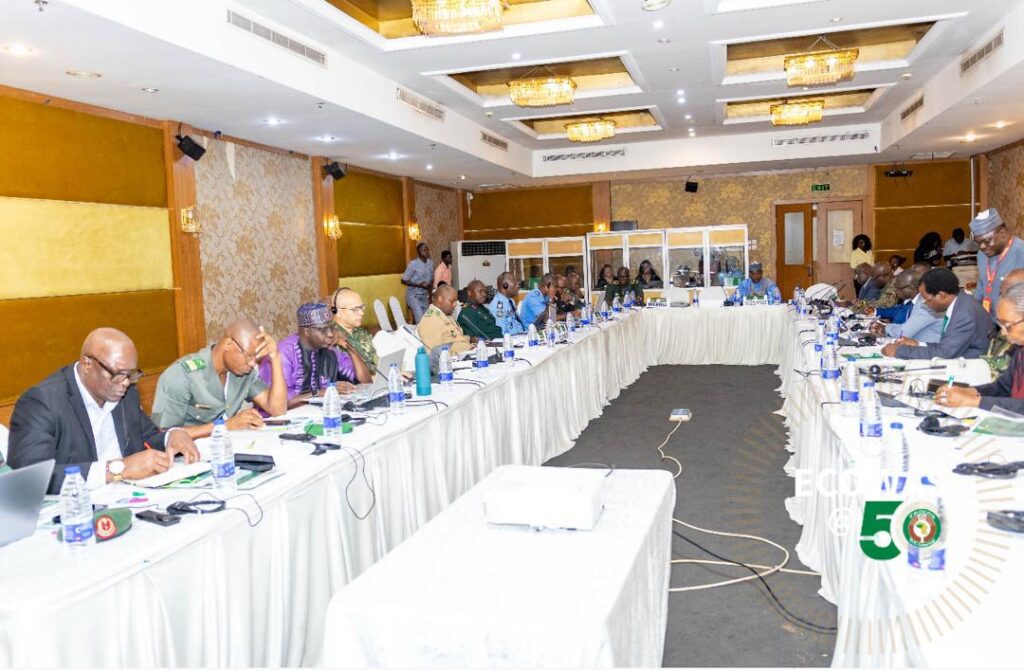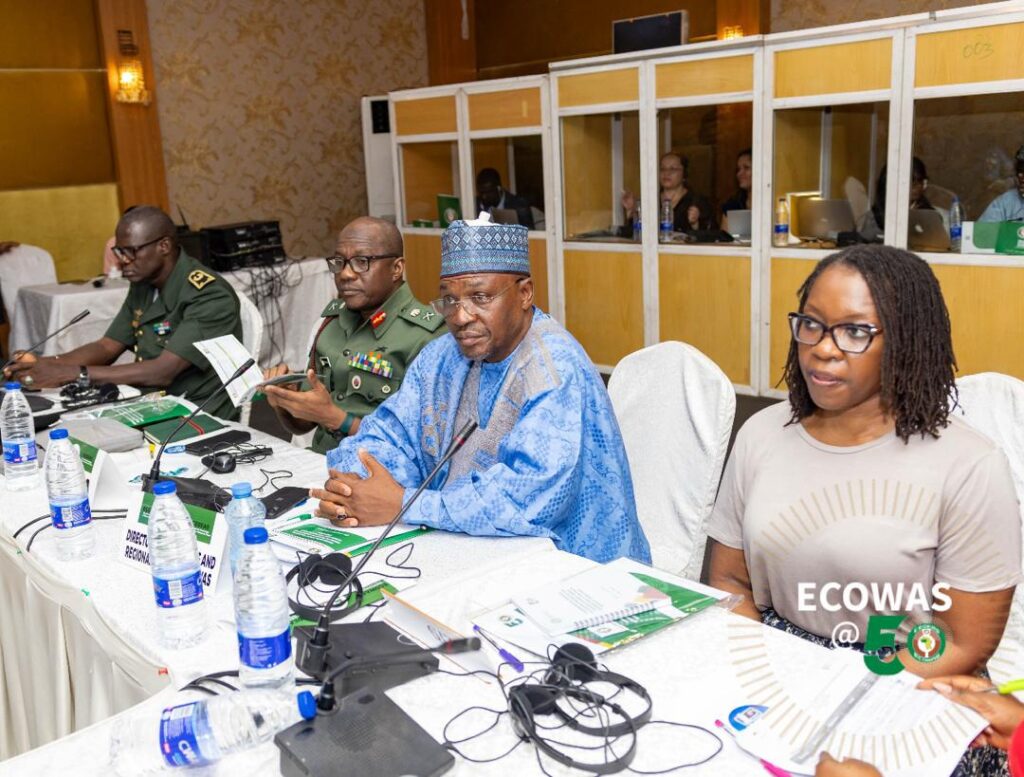ECOWAS Standby Force Training Policy Endorsed to Boost Regional Peace and Rapid Security Response.
By Raymond Enoch
In a bold move to fortify regional stability and accelerate conflict response capabilities, the Economic Community of West African States (ECOWAS) has officially endorsed a comprehensive Training Policy for Peace Support Operations, marking a transformative step toward operationalizing the ECOWAS Standby Force (ESF).

The landmark decision was reached during a High-Level Governmental Experts’ Validation Meeting taking place from July 16 to 17, 2025, in Abuja, Nigeria. Convened by the ECOWAS Commission, the two-day strategic dialogue brings together security and policy experts from Member States, ECOWAS technical directorates, and prominent international partners — including the European Union (EU), BMZ, GIZ, Expertise France, and AECID.

At the heart of this initiative is a clear objective: to transform the ECOWAS Standby Force from a conceptual framework into a mission-ready, rapidly deployable force capable of addressing the region’s complex security challenges — from armed insurgencies and transnational organized crime to political instability and humanitarian crises.
“This Training Policy is a game-changer for regional peacekeeping readiness,” said an ECOWAS official. “It delivers a unified, strategic framework to ensure that all components — military, police, and civilian — are trained to the highest standards, anchored in human rights, gender inclusivity, and conflict prevention.”
The policy is more than just a set of guidelines; it represents a cohesive doctrine for building a professional, interoperable, and accountable force, with standardized procedures across all 15 ECOWAS Member States. It prioritizes gender-sensitive approaches, upholds international humanitarian law, and aligns with the values outlined in ECOWAS Vision 2050 — a long-term blueprint for a peaceful, secure, and resilient West Africa.
Analysts view this endorsement as a critical milestone in ECOWAS’s evolving role as a regional peace and security actor. The policy also underscores the growing synergy between African-led security initiatives and international cooperation, signaling a renewed commitment by global partners to support locally driven solutions.
The ECOWAS Standby Force has long been central to the region’s collective security architecture, yet its operationalization has faced logistical and coordination hurdles. This new training policy is poised to close those gaps, introducing standardized curricula, joint simulation exercises, and a certification framework that ensures ESF components can act in unison across national borders.
“Preparedness is the cornerstone of peace enforcement,” noted one security expert at the event. “With this policy, ECOWAS is taking a decisive step toward becoming a credible first responder in African crises.”
As instability continues to threaten several parts of the West African region, including ongoing coups, extremist violence, and humanitarian displacement, ECOWAS is under increasing pressure to not only condemn but also intervene effectively. The endorsement of this policy sends a powerful signal: the region is gearing up for action — not just rhetoric.
With eyes now set on implementation, ECOWAS and its partners are expected to roll out the first phase of operational training modules before the end of 2025, further reinforcing their collective ambition to deliver “African solutions to African problems.”








